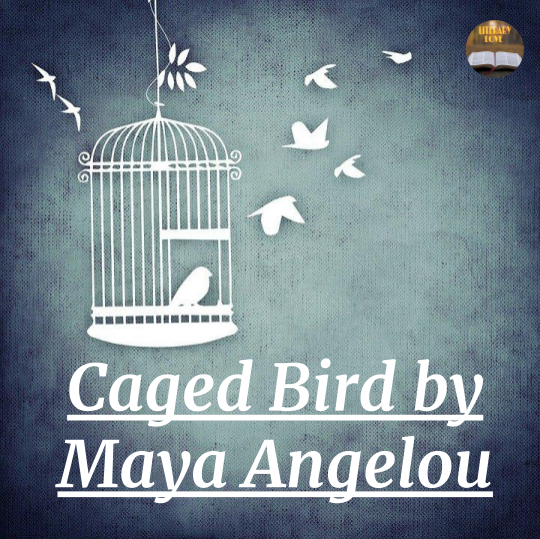Everyone Sang by Siegfried Sassoon
Everyone suddenly burst out singing;
And I was filled with such delight
As prisoned birds must find in freedom,
Winging wildly across the white
Orchards and dark-green fields; on - on - and out of sight.
Everyone's voice was suddenly lifted;
And beauty came like the setting sun:
My heart was shaken with tears; and horror
Drifted away ... O, but Everyone
Was a bird; and the song was wordless; the singing will never be done.
INTRODUCTION -
"Everyone Sang" is a famous poetic work by the English War poet, Siegfried Sassoon. The poem was published in 1919. It consists of ten lines which are divided into two five-line stanzas. Each stanza follows the rhyme scheme of ABCBB. The poem was written to celebrate the end of the First World War where the Germans were defeated by the British. The poem celebrates this victory. The speaker of the poem hears everyone around suddenly burst out singing, and the sound of singing fills him with delight. The poem wonderfully describes the joy at the end of a war.
POET -
Siegfried Sassoon (8 September 1886 – 1 September 1967) was an English poet, writer, and soldier. He is remembered as one of the best war poets during the First World War. His poems usually deal with the brutality and misery of war but some exceptions can be found in his works. His most famous works include The Old Huntsman, The Road to Ruin, Memoirs of an Infantry Officer, etc.
SUMMARY -
The poem begins with the speaker saying that everyone started singing a tune to show their delight. The end of the war was the reason behind it and the poet was delighted to see such a joyous environment. The atmosphere of happiness matched with that of those caged birds who are given sudden freedom. These birds fly merrily over gardens covered with snow that makes them look white and also fields full of greenery. They keep on flying until they are out of our sight. Hence, they taste the elixir of freedom. The people singing all around the poet too have achieved their freedom from war and its savageness and they too, celebrate their joy with songs.
In the second stanza, the poet continues this emotion of delight, though his meanings turn a bit obscure. The poet says that all of a sudden he got lost in a reverie and all the sounds of this singing were lifted from him. The poet started acknowledging the beauty that surrounded this quiet scene. It was just as beautiful as the setting sun which is a sight to behold. The poet was overwhelmed by this as his heart was filled with emotions. There were happy tears and all his fears left him which were replaced by pleasure. Further, the poet says that everyone matched a bird while continuing their singing that lacked words. This singing will keep on going as the people will never have to face such cruelty again. They will be free to roam and sing like those free birds.
THEMES -
- Joy at the end of a war - The people in the poem along with the speaker are celebrating the ned of a war. Their happiness and mirth are unmatched as they sing their joy. They remind the poet of birds that have been freed from their cage. This happiness will be ever-lasting.
END -
According to the poet, the war is just like a prison. When the war ends, it gives freedom and delight to every heart of the soldiers. Everyone feels free like a bird freed from its cage. So, everyone is celebrating the end of the first world war. At last, the poet expresses his joy by telling that this kind of joy will never be felt again. Freedom, victory, and joy must be celebrated by all of us. The poem is artistically accomplished and has a universal appeal.











0 Comments